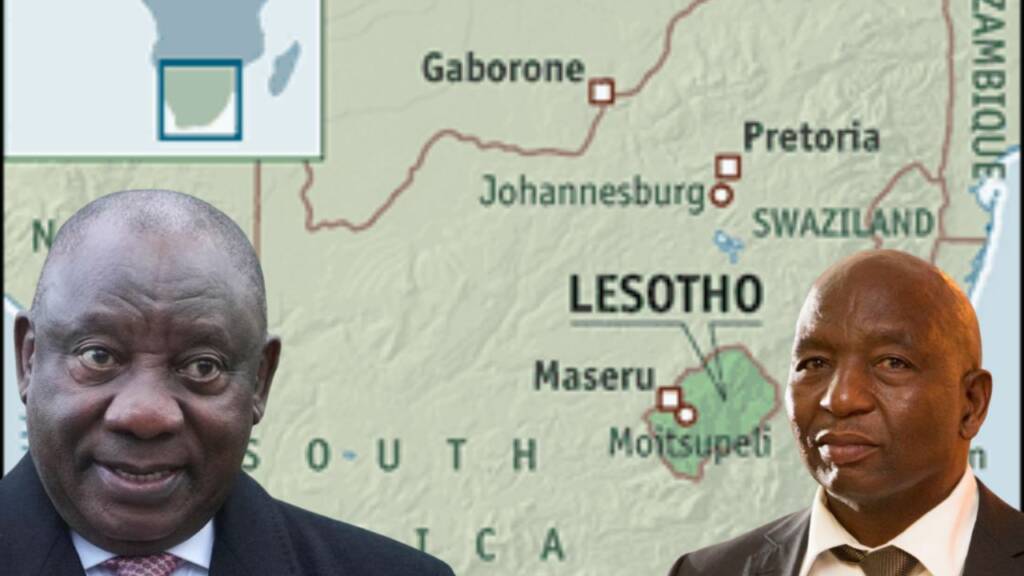Looks like the time has finally come for South Africa to annex Lesotho.
Lesotho to go back to South Africa?
According to recent reports, lawmakers in Lesotho are about to discuss whether the country should seek to reclaim large swathes of land from powerful neighbor South Africa. A motion put forward by an opposition MP aims to have the parliament declare South Africa’s entire Free State province, which borders Lesotho, as well as areas of four more regions as part of the small mountain kingdom. “I hope that, after the debate, our country will be returned to us, as it should have long been,” said the lawmaker, Tsepo Lipholo of the Basotho Conventional Movement (BCM), before the debate, to journalists.
The disputed regions were historically inhabited by the Basothos, a people from the Bantu ethnic group in southern Africa, who represent a large majority in Lesotho. The motion is based on a 1962 United Nations resolution that recognized the right to self-determination and independence for the people of Basutoland – as Lesotho was then called.
However, if such a motion is passed, it could have adverse effects on the poor and impoverished people in the region. The Kingdom of Lesotho, a small landlocked country in southern Africa, has long struggled with economic instability, political turmoil, and environmental challenges. Despite its rich cultural heritage and stunning natural beauty, the country has yet to realize its full potential as a sovereign nation. For this reason, it is worth considering whether Lesotho would be better off as a part of South Africa rather than continuing to struggle as an independent state.
Read More: Biafra Unchained: Breaking Free or Breaking Down?
There are several compelling reasons why Lesotho could benefit from closer ties with South Africa. First and foremost, South Africa is a much larger and more economically developed country than Lesotho, with a GDP per capita of over $6,000 compared to Lesotho’s $1,400. This means that South Africa has far greater resources at its disposal to support Lesotho’s development, such as investment in infrastructure, education, and healthcare.
Lesotho has long been plagued by high unemployment rates, with up to 25% of the population out of work. By becoming a part of South Africa, Lesotho could tap into the larger economy of its neighbor, potentially creating new job opportunities and attracting new investment. In fact, many Basotho people already work in South Africa, with an estimated 400,000 Basotho migrants living and working in the country.
Read More: Biafra Unchained: Breaking Free or Breaking Down?
In addition to economic benefits, joining South Africa could also provide Lesotho with greater political stability. Lesotho has a history of political instability, with several coups and attempted coups over the years. By becoming a part of South Africa, Lesotho would benefit from the stable democratic institutions and rule of law that exist in South Africa. This could help to prevent future political crises in Lesotho and promote greater social and economic stability.
Another important consideration is the fact that Lesotho heavily depends on South Africa for its water supply. The Lesotho Highlands Water Project, which supplies water to South Africa, is a significant source of revenue for Lesotho. However, the project has caused environmental degradation and displaced local communities. By joining South Africa, Lesotho could negotiate a better deal for its water resources and ensure that its people are not adversely affected by the project.
There are also cultural and historical ties that suggest Lesotho should become part of South Africa. The Basotho people share a common language, culture, and history with the people of South Africa, particularly those in the neighboring province of KwaZulu-Natal. Lesotho was also historically part of the Sotho-Tswana kingdoms that existed in southern Africa before European colonization. By becoming part of South Africa, Lesotho could reconnect with its cultural and historical roots and strengthen ties with its neighbors.
Read More: In a final blow to the west, South Africa to host Naval exercise with Russia & China
Additionally, Lesotho’s children are taught that their country exists because King Moshoeshoe I, the founder of the Basotho nation, stood up to the Boers and British in the late 19th century. However, in reality, the British allowed the kingdom to survive to keep the Boers of the Orange Free State from the sea.
Many Basotho also look to the South African government for compassion. The African National Congress was founded in Lesotho in 1912 by King Letsie II. During the struggle against apartheid, the ANC’s armed wing organized its guerrilla units from the enclave. Of course, there are potential downsides to becoming part of South Africa. Some Basotho may fear losing their cultural identity and being absorbed into the larger South African society. Concerns may also arise about unequal treatment of Lesotho citizens within South Africa, given the history of apartheid and ongoing social and economic inequalities in the country.
But, these concerns must be weighed against the potential benefits of joining South Africa. While independence is an important principle, it is not an end in itself. Ultimately, the goal of any nation should be to improve the well-being of its citizens and promote sustainable development. If becoming part of South Africa can help achieve these goals for Lesotho, it is worth considering. It should be noted that even the people of the region have asked South Africa in the past to annex their region, indicating their desire for what we at TFI are vying for.
Read More: South Africa rejects Biden’s proposal to oppose Russia
While the issue of Lesotho’s sovereignty is complex and sensitive, but there are compelling reasons why the country could benefit from becoming a part of South Africa. It would provide greater resources, stability, and development opportunities while enabling it to negotiate a better deal for its water resources and reconnect with its cultural and historical roots. Ultimately, the decision should prioritize the best interests of the people of Lesotho.
https://www.youtube.com/watch?v=1CfnOsrp1Yg&t=1s
